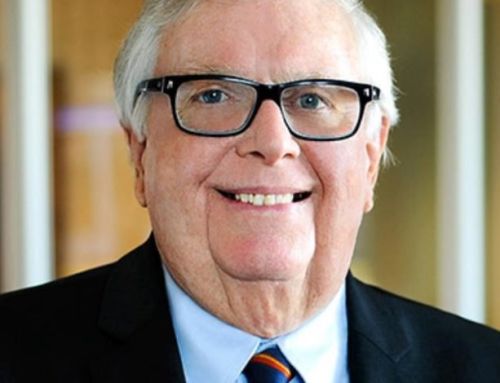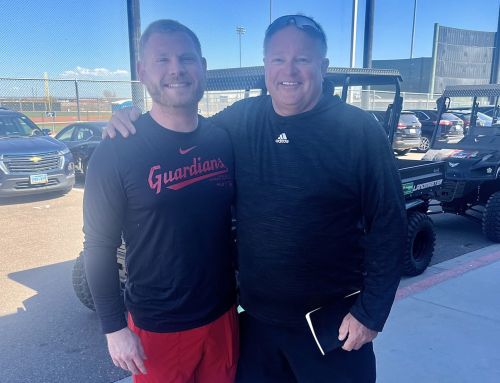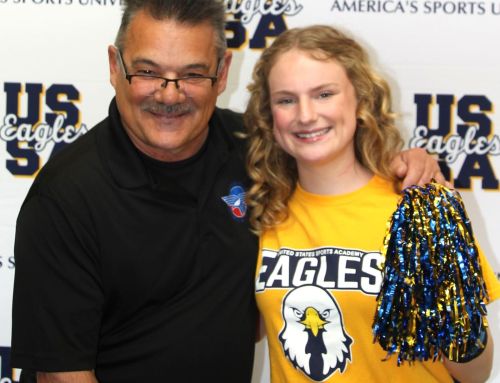Now Is a Good Time to Coach Sports as a Career
For more than two decades, Lexie Hernandez has been helping young and aspiring figure skaters find success on the ice. To help take her career to the next level, she decided to pursue a Bachelor of Sports Science degree in sports coaching from the United States Sports Academy.
“The Academy degree program combines my love for sport and competition with the science behind it all,” says Hernandez, who has been skating since she was 5 years old. “I am excited to not only see how this degree helps improve my coaching, but also how it impacts my life by making me a better person.”
According to the U.S. Department of Labor, nearly 300,000 coaches and scouts like Hernandez are employed around the country each year — and that number continues to grow. If you’re considering a coaching career, read on to discover answers to some of the most pressing questions we hear from prospective students.
So, what does a sports coach do?
Whether you’re working with individuals or teams of athletes, coaches help others reach their full potential in their athletic pursuits. By pursuing careers in coaching sports, you can expect to:
- Identify both strengths and weaknesses of your athletes. By helping your athletes improve upon their weaknesses and strengthen where they shine, you will help them grow in both practice and performance. To support your athletes or teams in their continued progress, you may also develop tailored training programs.
- Recruit and scout other athletes. If you’re a college or professional sports coach, recruiting and scouting athletes will be a vital part of your job. It’ll be important to learn how to identify athletes that best fit your coaching situation and style.
- Teach athletes relevant skills and techniques related to their sport. If you’re working with young athletes, you may need to teach more introductory skills and techniques. If you’re coaching college or professional sports, you may focus on fine-tuning their skills and providing more guidance and mentorship during practices and performances.
- Advise athletes to make positive health and lifestyle changes. A growing part of careers in coaching sports involves helping your athletes thrive in competition — all while balancing their emotional, mental and physical needs. Careers in coaching are more than just wins and losses, and it’s important to make sure that your athletes are happy and healthy as they compete.
When looking at careers in coaching, where will I work?
Athletic coaches span the spectrum and work in every sport around the world. You will most likely focus on one sport while pursuing careers in coaching at:
- Middle and high schools
- Colleges and universities
- Professional sports teams
- Camps and local sports clubs
- Fitness centers
- Sports national governing bodies and councils
“The education I received prepared me to understand all facets of the sports industry and its impact on society. The best part of earning my degree with an institution that focuses only on sports was learning from professors who have worked in the industry and share ideas with others with similar interest.” — Fred Reed, M.S.S. Sports Management ’02
Defensive Pass Game Coordinator and Safeties Coach, Eastern Michigan University
What qualities and skills make a sports coach successful?
Sports coaches frequently have contrasting styles, and as you’re considering careers in coaching, it’s important to hone and develop a coaching style that works for you. Even though how you coach may differ from others on your team or within your program, you’ll notice that there are some traits that all successful coaches exhibit in both performance and practice.
Graduates of the United States Sports Academy tell us that, to succeed, you need to have:
- An ability to effectively communicate and listen. No matter the age of your athletes, you will need to be able to explain ideas clearly and concisely. Communication is important as you’re teaching proper rules, strategies and techniques, as well as setting goals for your athletes and team. Strong communication is also vital for providing constructive feedback before and after competitions.
- An ability to make quick and accurate decisions. Most sports activities take place in fast-paced environments, and it’s vital for a coach to know when to make a substitution, call a timeout or call the correct play — and do so at the right time.
- A willingness to learn and grow. Whether you’re just starting to consider careers in coaching sports or you’ve been working with athletes for decades, it’s important to embrace change and be a life-long learner. Throughout your coaching career, you will need to keep up to date on rule changes and subjects such as exercise physiology, nutrition and sport psychology.
- An adept motivator. While it’s important to communicate well with your athletes, a successful coach must motivate athletes in a way that helps them positively excel. Much like developing a coaching style, there are also a lot of ways to motivate an athlete — but doing so in a fun and enjoyable way will benefit everyone.
- An expert in your sport. Maybe you played the sport you’re coaching. Maybe you have loved a particular sport ever since you were a child. No matter your case, to effectively teach a sport requires advanced knowledge and know-how of the sport.
What is the job outlook for careers in coaching sports?
Now that you know a little bit more about careers in coaching, you’ll be glad to know that jobs as sports coaches are expected to rise 12% over the next decade, according to the U.S. Bureau of Labor Statistics. That’s a faster pace than the average for all jobs.
So, why are there more careers in coaching sports available? It’s pretty simple — high schools and colleges around the U.S. are projecting increased participation in sports and are expanding their sports offerings.
What can I expect to earn as a sports coach?
Pay ranges for sports coaches can vary depending on where you live, what sport you are coaching and whether you’re coaching at the professional or amateur level. According to salary.com, though, a head coach can expect to make, on average, $81,732 a year, while an assistant coach can make approximately $56,013 a year.
“The Academy’s program is convenient for me with my family at home and my work as a coach. I’m able to take classes and get my work done in between being a mom, coaching and work travel.” — Lexie Hernandez
Bachelor of Sports Science degree in sports coaching student
Take the next step in your sports coaching career
Designed by coaches for coaches, the United States Sports Academy programs will help current and future coaches and sports professionals gain the knowledge and know-how to be successful in their careers and in working with aspiring athletes.
At the Academy, you’ll benefit from:
- Coursework that can be taken entirely online. Take classes night or day and on a schedule that works for you.
- Sports experts in the classroom. Our faculty members have the highest degrees in the field and have been influential coaches on the sidelines. They’ll bring their experiences and expertise from competition to your learning.
- Degree options that are completely customizable. At the United States Sports Academy, we have flexible options that can be built to fit your needs. We also have a FastTrack option that gets you career-ready in as little as 15 months.
Get ready to lead athletes to success and learn how the United States Sports Academy can help you get into the game with a career in coaching.





